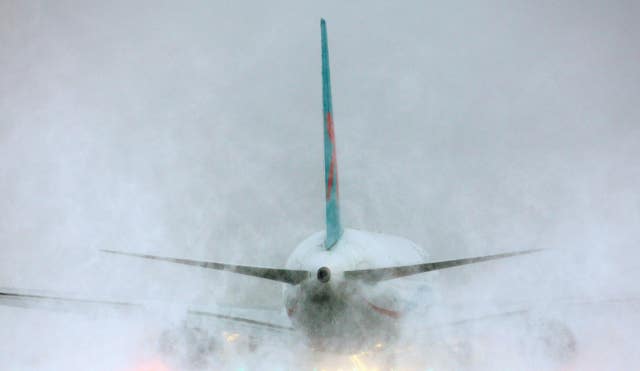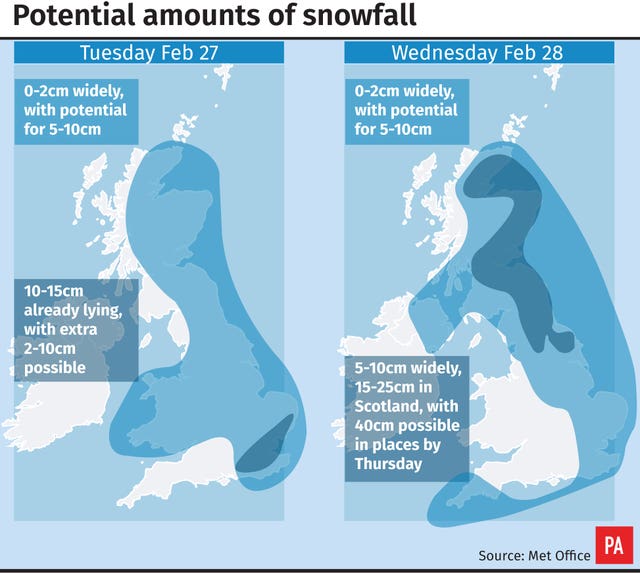How does wintry weather affect the UK economy?
A cold snap can hurt economic growth, while boosting use of computers and cloud technology.

The cold snap has already disrupted train services, forced schools to close and caused airlines to cancel flights. But what sort of consequences could there be for the UK economy?
Periods of extreme wintry weather are rare in the UK, but one of them hit the UK in December 2010, and its impact on the economy was later investigated by the Office for National Statistics (ONS).
Its findings suggested that the cold snap caused a temporary drop in overall economic growth (GDP), along with dips in the growth of output for retail sales and the UK’s service industries.
The distribution, hotel and restaurant sector showed evidence of an impact, as “customers postponed discretionary trips because of the bad weather.”
Overseas travel and tourism was also affected, with the cold weather having a “detrimental effect” on the number of UK residents travelling abroad.
There was “no apparent effect” on the average number of weekly hours worked in the country, however, while higher activity was recorded in “computer programming, consultancy and related activities” – an area that could be “less prone to weather disruption”.

The current cold snap is not forecast to be quite so severe or last as long, and so far this week temperatures have fallen only as low as minus 8.9C, recorded at Farnborough in Hampshire.
But even a small dip in average temperature could still have an impact on the economy.
A study carried out in 2015 by the Centre for Economics and Business Research (Cebr) suggested that a drop of one degree in the minimum average temperature can cost the UK economy £2.5 billion, thanks to lower output among businesses affected by cold weather plus lost productivity caused by transport delays and people not making it to work.
Periods of extreme cold weather were believed to have lowered economic growth in the UK between 2005 and 2015 by a total of 0.6 percentage points.
To put this in context, the UK economy is estimated to have grown by 1.7% between 2016 and 2017, according to the latest figures from the ONS.
But the Cebr study also suggested that the IT and communications sector can experience positive growth during poor weather, due to more people working from home and using cloud technology to do business.

It will be a few months before reliable data is available to see whether the wintry conditions may have had an impact on the economy.




